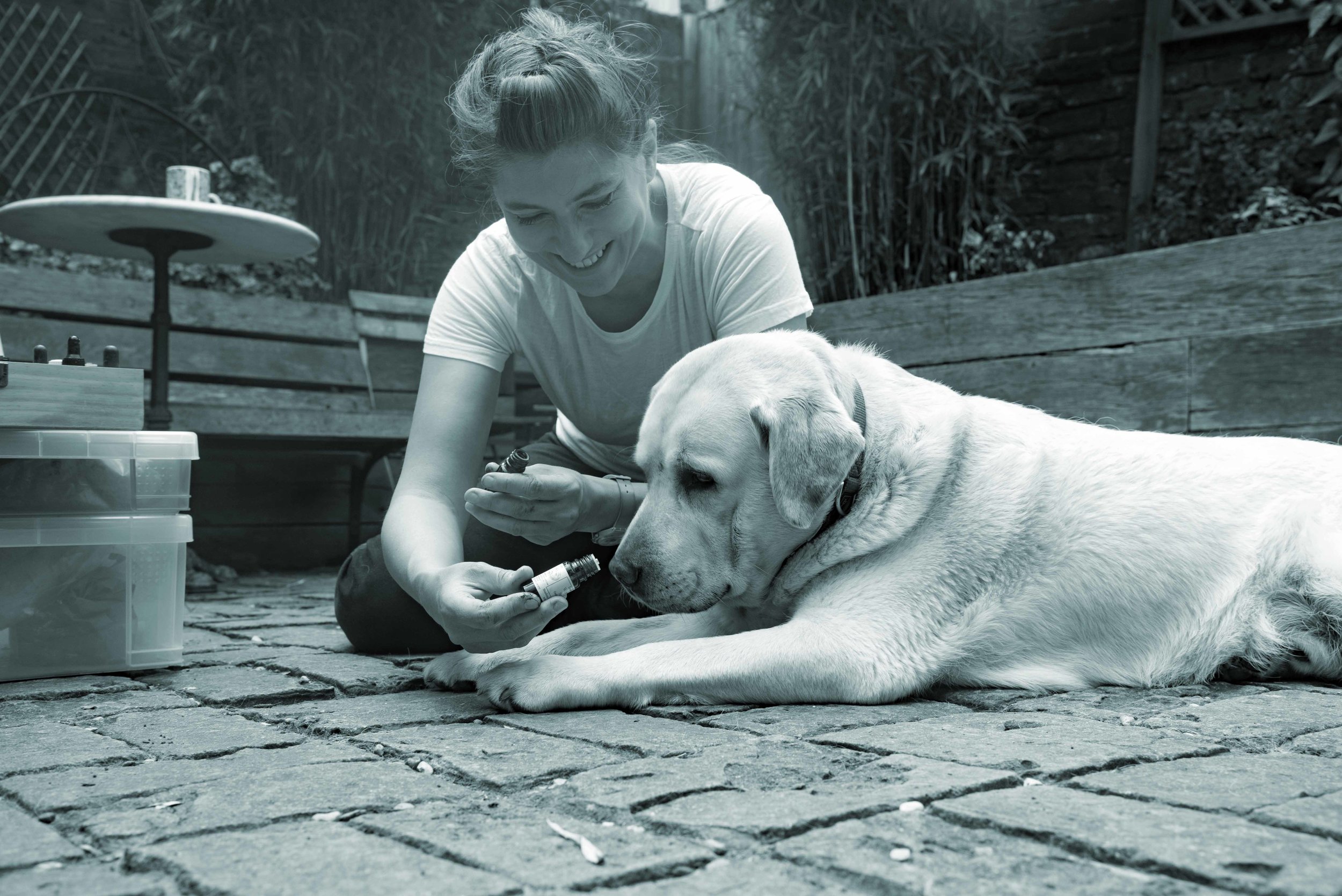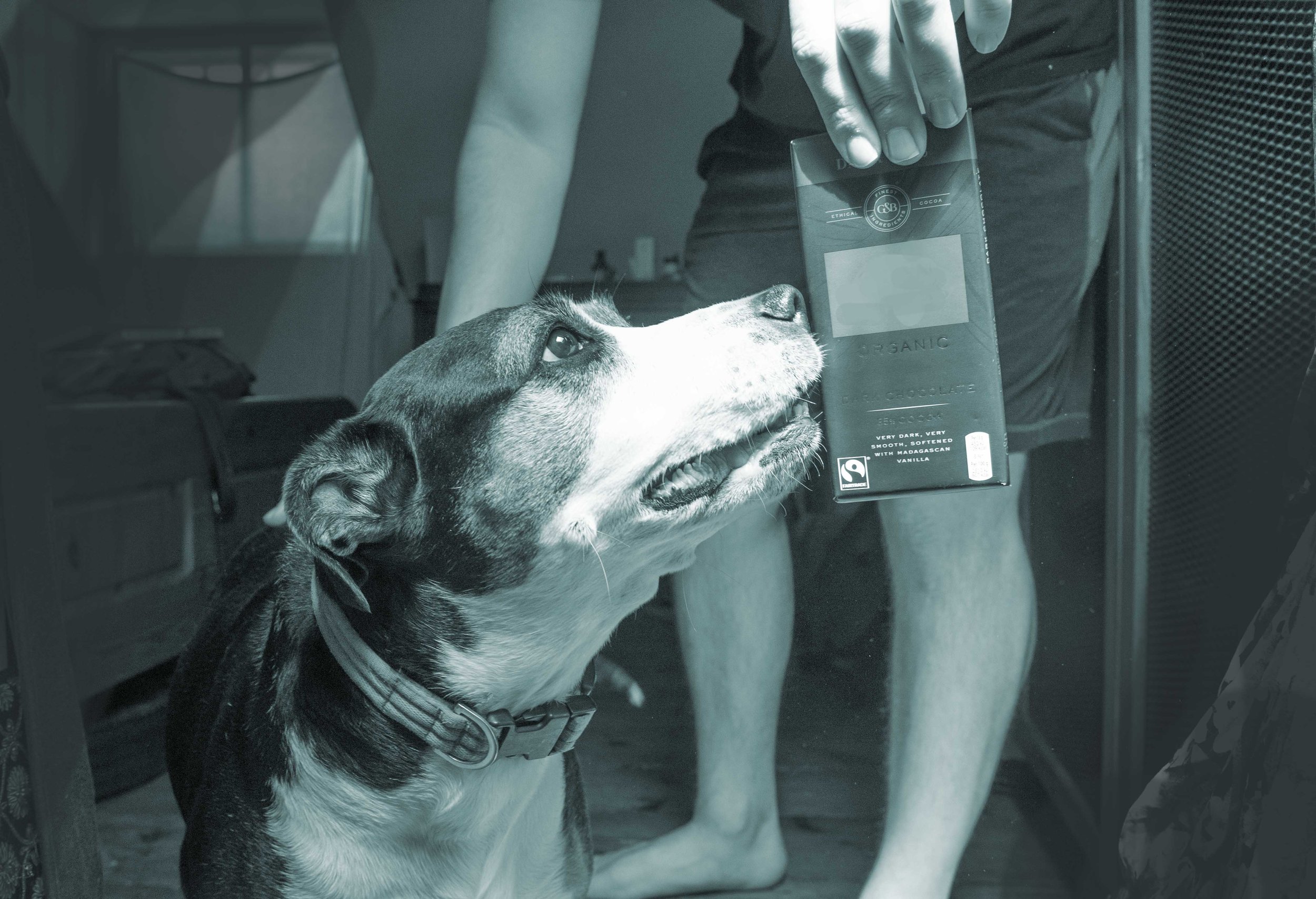
How can Applied Herbal Choices help?
This is a natural therapy that can support behavioural issues
Owners of animals lacking focus or confidence, struggling to settle, suffering from anxiety or being reactive to noises and/or people can struggle for years trying to find help. This can impact on how you feel about your animal and undermine trust in each other, spoiling what should be a joyful and loving relationship.
Applied Herbal Choices works from the ground up by bringing the wealth of nature into your animal’s home and an opportunity to choose from dozens of essential oils and herbs which offer a huge spectrum of properties to help. Even if your dog is one that eats or sniffs everything, this is a chance to observe the unique choices that an individual animal makes – given the opportunity to do so.
This is a therapy that offers animal owners a chance to deepen the bond between them and their dog or horse. The root of many unwanted behaviours can be anxiety,
Remote Therapy
In order to be able to make Herbal Choices accessible to as many pet owners as possible, I can offer a remote service for dogs. This involves you completing a questionnaire so that I can use the Chinese Five Element system to determine a suitable selection of oils for your pet. These will then be sent to you as a bespoke set of aroma sticks, along with detailed instructions of how to use them. You may also book a remote face to face session too, if you need more support. Please email me if you are interested.
The Theory Behind the Therapy
Ever wondered why your dog eats grass or your horse suddenly dives into the hedgerow for something it normally walks straight past?
These are examples of animals foraging their local environment and making specific selections based on what their body is telling them it needs.
Most people have seen their dog eat grass and then purge the contents of their stomach, a natural way for a body to rid itself of bacteria or foreign objects present in the gut.
This type of behaviour was recognized and called ‘zoopharmacognosy’ by a Cornell University biochemist, Dr Eloy Rodriguez (zoo=animal; pharma=medicine; cognosy=knowing).
After studying aromatherapy with Robert Tisserand, Caroline Ingraham recognized the healing potential of a new approach to using essential oils with animals and has spent her life pioneering a method of enabling animals to heal themselves based on this innate ability and the theory of ‘sensory modulation’ which enables animals to manage their dosage.
The Theory of Sensory Modulation

A Little of What You Fancy
We are all familiar with the odd food cravings or have heard about the sudden revulsion for familiar food that pregnant women sometimes experience. Why else might this occur unless their taste and olfactory senses are altered by the biological processes within their bodies?
An example I use in workshops and talks, is licorice powder, one of the items I have in my kit.
Enough’s as Good as a Feast
Fans of licorice could probably happily munch their way through most of a bag of licorice sweets, and while the plant itself has powerful health properties, eating it as candy mixed with refined sugar and other flavourings is not helpful, and can interfere with our own innate ability (The Ingraham Theory of Sensory Modulation) to manage our dose of this valuable plant .
Licorice has been used in Traditional Chinese Medicine as a tonic for the spleen and heart, for ulcers, colds and skin issues and in complementary medicine for a host of conditions including adrenal imbalance.
But if you were to dip your finger into natural, unadulterated licorice powder, you might at first think, ‘Yum, this is lovely. Just like sweets.’ However, I guarantee that after less than half a teaspoon of the powder, the flavour would alter, and you would begin to find it bitter and unpleasant. Why? You are still eating the same substance, but now your senses have modulated to tell you that you’ve had enough.
Pimped Up Poison

Pimped Up Poison
This is one the reasons processed and junk food are so bad for our health. They are so packed full of sugars, umami (MSG) flavourings and salts that act as masks that we are unable to discern whether the food is beneficial or whether it is harmful to us.
This also goes some way to explain why animals sometimes poison themselves with chocolate or anti-freeze. The artificial additives contained in these are so powerful that they can confuse the senses of animals, who are then unable to detect the toxic substances.
Another common cause of domestic animal poisoning is non-native plants. Caroline Ingraham explains that if plants originate from areas where canines have not evolved, then our domestic dog species does not possess the innate ability to detect their specific toxins.
Learn a Life Skill

Learn a Life Skill
As a Herbal Choices Consultant, I will teach you how to use herbs and essential oils safely, opening up a fascinating world that combines ancient knowledge and modern science.
If you would like to read more the principles of Applied Zoopharmacognosy with animals, click here for my recommended reading list

